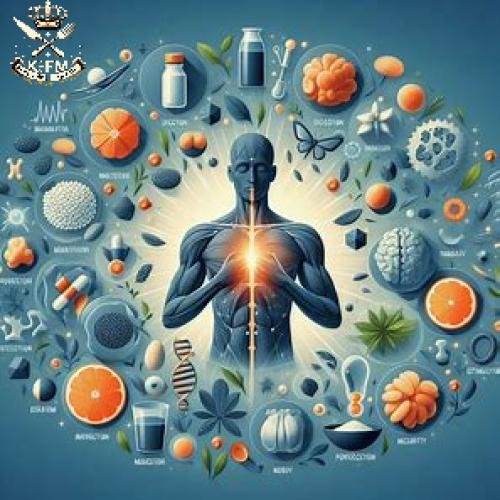One of the common and incorrect concepts in human nutrition is the saying, "Eating more food leads to better health," as some people believe that consuming large quantities of food, especially fatty, sugary, and protein-rich foods, will enhance their health and provide extra energy. However, nutrition experts emphasize that overeating can lead to serious health issues such as obesity, diabetes, and high blood pressure. The importance of following a balanced diet that contains essential vitamins and minerals, such as vitamin C to boost immunity, vitamin D to support bone health, and potassium to maintain blood pressure, lies in consuming natural foods like fruits and vegetables.

Among the common and incorrect concepts in human nutrition is the saying, "Eating more food leads to better health," as some people think that increasing food intake, especially fatty, sugary, and protein-rich foods, enhances health and provides the body with energy.
However, nutrition experts and health scientists confirm that these assumptions are incorrect. Overeating opens the door to many diseases such as diabetes, high blood pressure, arteriosclerosis, and obesity. Excessive food intake, especially at certain times like during sleep or after eating at night, increases the likelihood of heart attacks and strokes due to the buildup of fats and plaques in the blood.
Frequently Asked Questions:
How can overeating be avoided?
- Eat small and balanced meals: It is better to eat small meals every 3-4 hours instead of large, heavy meals.
- Stop eating when you feel full: It's helpful to learn to listen to your body and stop eating when you feel satisfied.
- Avoid eating at irregular times: Sticking to regular meal times helps regulate appetite and reduce overeating.
What is the ideal amount of food to consume daily for maintaining good health?
- 5-7 servings of fruits and vegetables daily.
- 2-3 servings of proteins like lean meats, fish, eggs, or plant-based alternatives like legumes.
- 3-4 servings of carbohydrates like whole grains, potatoes, and rice.
Does overeating at night lead to more health problems than eating at other times?
Yes, overeating at night can lead to more significant health issues. Eating late at night causes weight gain because the body does not use energy in the same way as during the day. Also, sleeping after eating a heavy meal can lead to digestive problems such as acid reflux and heartburn.

In the summer, a person becomes more susceptible to strokes due to excessive sweating and dehydration. Smokers and obese individuals are at a greater risk of strokes due to the loss of arterial elasticity. Therefore, we should avoid overeating and adhere to a healthy lifestyle, relying on God for the blessing of health and safety. Peace be upon you.
The Importance of Physical Activity Alongside a Balanced Diet
A healthy diet alone is not enough to maintain good health; it must be complemented with regular physical activity. Exercise helps improve physical fitness, increase muscle strength, and enhance body flexibility, in addition to boosting the functions of the heart and lungs. Physical activity improves the body's metabolism, aiding in the burning of excess calories and reducing the risks of chronic diseases such as diabetes and high blood pressure.
Symptoms Resulting from Overeating
When we overeat, the symptoms may not appear immediately, but over time, we may notice a range of common symptoms indicating that we are consuming food in excessive and unbalanced amounts.
- Sudden Weight Gain: A common symptom of overeating is rapid weight gain due to the body's storage of excess calories as fat.
- Constant Fatigue: Overeating can lead to body fatigue due to the excessive energy consumed during the digestion process.
- Indigestion: Eating large amounts of food at once causes discomfort in the stomach, bloating, and gas, indicating that the digestive system is under stress.
The Long-Term Impact of Sugary Foods on Health
Excessive consumption of sugary foods, such as sodas and sweets, can negatively affect health in the long term. Excess sugar intake leads to elevated blood sugar levels, increasing the risk of type 2 diabetes. Additionally, sugar promotes the accumulation of fat in the body and raises the chances of obesity, which is associated with other health issues like cardiovascular diseases. It is important to reduce added sugar intake and seek healthy alternatives, such as fresh fruits, to satisfy the sweet cravings without affecting health.




















